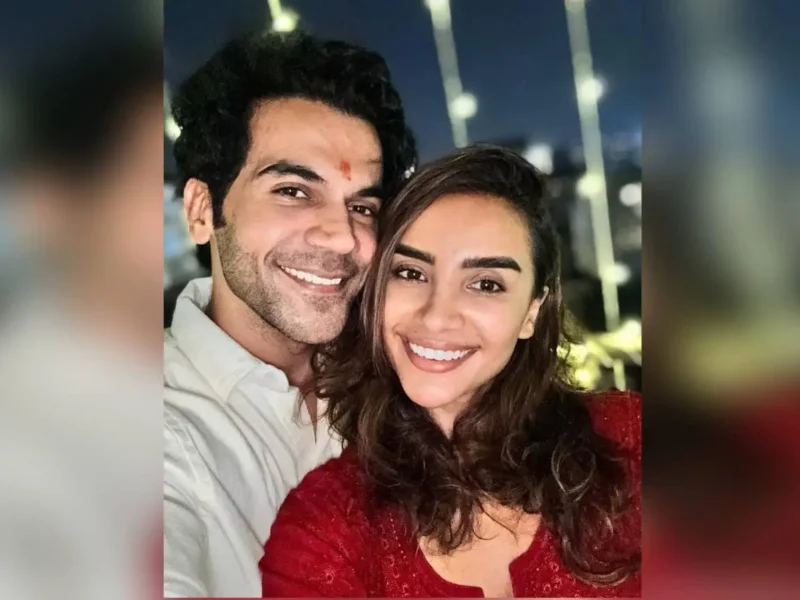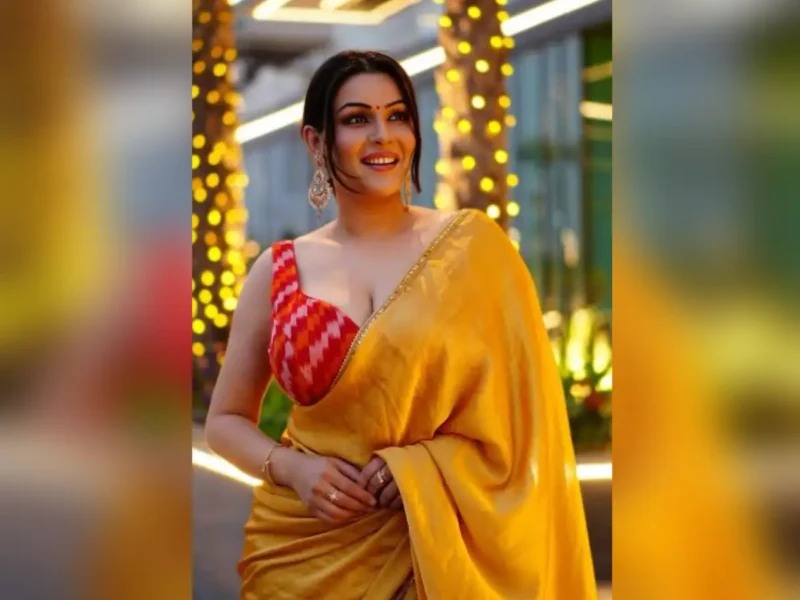
India-West Entertainment Reporter Rajiv Vijayakar Pens Book: ‘Music by Laxmikant Pyarelal: The Incredibly Melodious Journey’
The cover of “Music by Laxmikant Pyarelal: The Incredibly Melodious Journey,” by India-West entertainment reporter Rajiv Vijayakar. (photo provided)
By SUNITA SOHRABJI/India-West Staff Reporter
The music of duo Laxmikant-Pyarelal is played, every hour if not more frequently, in every nook and cranny of the country, over two decades after they stopped composing together. It also finds due place globally, wherever Indian music is loved.
Today, Pyarelal has his own global standing, and is the only Indian composer to have a symphony registered in his name. He will be making a tour at several venues across the US next year.
India-West veteran entertainment reporter Rajiv Vijayakar has penned a new book about the musical duo: “Music by Laxmikant Pyarelal: The Incredibly Melodious Journey,” released on Kindle and in print by Rupa Publications in October.
“This book encapsulates what can only be called the ‘Musical Universe’ of Laxmikant-Pyarelal. Here is a duo known as much for incomparable range and quality as for unmatched popularity and quantity; as much for intimate associations with lyricists, singers, filmmakers and stars as for giving career breaks and breakthroughs to so many; as much for chartbusters from the 1960s to 1990s as for leading in the list of re-created songs today,” Vijayakar told India-West.
“From teenage musicians to being the composers of over 500 films, their journey is truly incredible in every aspect. They are admired by international as well as Indian classical maestros,” he said.
Excerpts from an interview with Vijayakar:
When did you first meet Laxmikant-Pyarelal?
I met them both in 1990 at Mumbai’s Mehboob Studios. From childhood, they were my favorite composers as their music was especially attractive (Hindi films and film music was a staple in my family, comprising my parents and I) for me. As a journalist, interestingly, I met them first for their views on one of their lyricists who had passed on. The recording of Subhash Ghai’s “Saudagar” was going on, but their response was very cordial.
About a year later, I was commissioned to do a pocket-sized booklet called “Junior G” (which was a biography of a celebrity) by “G” film magazine. This was enclosed free with the monthly. It was then that I had a series of wonderful meetings with both, with Laxmi-ji at his music room and Pyare-bhai at his home.
What stands out for you amongst their vast repertoire of work?
As it comes across in my book, their range and brilliance cannot be described in a sentence or more. Both were trained in Indian classical, with Pyarelal being also groomed in Western music, and they became a duo without parallel, learning the do’s and don’t’s of the business in over a decade of being musicians with as well as arranging music or assisting all the big names of the time from Naushad and Shankar-Jaikishan to O.P. Nayyar, S.D. Burman and Kalyanji-Anandji.
What is Laxmikant-Pyarelal’s legacy? Do you see it reflected in contemporary music today?
Their legacy is timeless, and they have conclusively proved that quality is not necessarily compromised by quantity, as in Hindi cinema, no one else comes close to their tally of exactly 500 released film soundtracks. From a film set in the B.C. era like “Utsav” to the disco-based “Karz,” all are a part of their repertoire.
In contemporary times, the number of re-created songs of theirs is higher than anyone else’s. And of course, we have their timeless and iconic numbers that span “Chahoonga Main Tujhe” (“Dosti”), “Sawan Ka Mahina” (“Milan”), “Bindiya Chamkegi” (“Do Raaste”), “Maar Diya Jaaye” (“Mera Gaon Mera Desh’), “Dafliwale” (“Sargam”), “Lambi Judaai” (“Hero”), “Chitthi Aayi Hai” (“Naam”) and “Choli Ke Peeche” (“Khal-Nayak”) that are so unique they cannot ever be re-created.
Scores like “Shagird,” “Bobby,” “Roti Kapada Aur Makaan,” “Amar Akbar Anthony,” “Karz,” “Ek Duuje Ke Liye” and “Tezaab” not only are timeless (and very variegated) marvels but also helped these movies hugely at the box-office.
Any additional comments?
I personally feel that this is the book on which I have worked the hardest, as the people I was writing on were phenomenal. To put it simply, I set out to write a book on my favorite composers and in the process of meeting some 40 associates including filmmakers, lyricists, singers, musicians and stars, I came to realize that I was actually writing about the most complete and truest film music composers in Hindi cinema.
About the author:
Vijayakar has been an entertainment journalist for over 30 years now. A dental surgeon by qualification, he has been Mumbai correspondent for India–West since 1993, and has had long associations with prestigious Indian publications like Screen, Deccan Herald, Mid-Day, Stardust, Showtime, Movie Mag International, Star & Style, G Magazine, AV Max, Bollywoodhungama.com, Shaadi Times, Worldspace.com and others.
Vijayakar has written two other books: “Dharmendra: Not Just a He-Man,” also published by Rupa Publications in 2018; and “Main Shayar Toh Nahin,” released by Harper Collins in 2019. He is also the author of “The History of Indian Film Music” (2010) published by Times Group Books, which is now on the teaching course at the Herb Alpert School of Music at the University of California, Los Angeles.
Vijayakar has been on the 62nd and 58th National Film Awards jury. His research paper, “The Role of a Song in a Hindi Film,” is now on the syllabus of South Asian cinema studies at the University of Edinburgh.
He is also the sole content team member for Hindi film music at the Indian Music Experience, India’s first and digitally interactive museum on music, which opened in 2019 in Bangalore.
Vijayakar has been awarded the Hindi Seva Samman in 2013 on Hindi Diwas by the Vishwa Hindi Academy, Mumbai, for his contribution to Hindi cinema and music.




